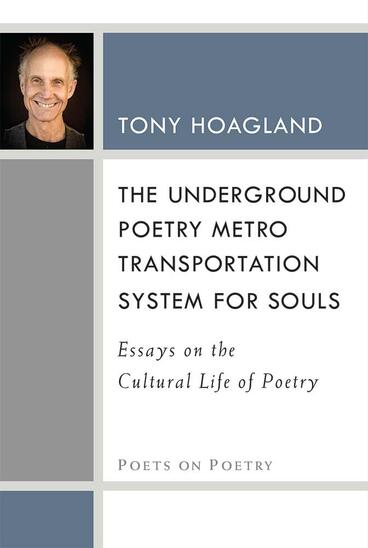The Underground Poetry Metro Transportation System for Souls
Essays on the Cultural Life of Poetry
Tony Hoagland’s essays, full of sharp wit and astute observations, draw out the poetry hiding everywhere in American culture.
Description
The Underground Poetry Metro Transportation System for Souls collects 16 essays by late Tony Hoagland. Gathered by Hoagland himself into a volume for the Poets on Poetry series, these pieces grapple with an expansive range of poetic and cultural concerns—and the surprising and necessary knowledge to be found where they cross paths. His trademark humor and irony, at once approachable, thoughtful, and sophisticated, lead the way toward clear-eyed, sometimes difficult, considerations of contemporary American culture. Through his curiosity, he elevates the seemingly quotidian into a profound subject worthy of close consideration. Hoagland’s generosity of spirit imbues his work with empathy for experiences beyond his own, and his honesty allows him to turn a critical eye on himself and to acknowledge the limits of his understanding. This collection will be rewarding not just for readers of contemporary poetry, but for anyone who wants to step back, take a look at our American reality, and know we’ll be okay.
Tony Hoagland (1953–2018) was the author of six poetry collections, including Donkey Gospel (1998), winner of the James Laughlin Award; What Narcissism Means to Me (2003), a finalist for the National Book Critics Circle Award; Unincorporated Persons in the Late Honda Dynasty (2010); and Priest Turned Therapist Treats Fear of God (2018). His two previous essay collections are Real Sofistakashun (2006) and Twenty Poems That Could Save America and Other Essays (2014). He received fellowships from the National Endowment for the Arts and the Provincetown Fine Arts Work Center, as well as the Folger Shakespeare Library’s O. B. Hardison Prize for Poetry and Teaching, the Poetry Foundation’s Mark Twain Award, and the Jackson Poetry Prize from Poets & Writers. Hoagland taught at the University of Houston and the Warren Wilson MFA program.
Reviews
Praise for Tony Hoagland:
“Tony Hoagland’s imagination ranges thrillingly across manners, morals, sexual doings, kinds of speech both lyrical and candid, intimate as well as wild.”
—The American Academy of Arts and Letters
“Hoagland’s verse is consistently, and crucially, bloodied by a sense of menace and by straight talk.”
—The New York Times
“Hoagland’s work is refreshingly accessible without compromising sophistication or a complexity of thought.”
—Publishers Weekly

